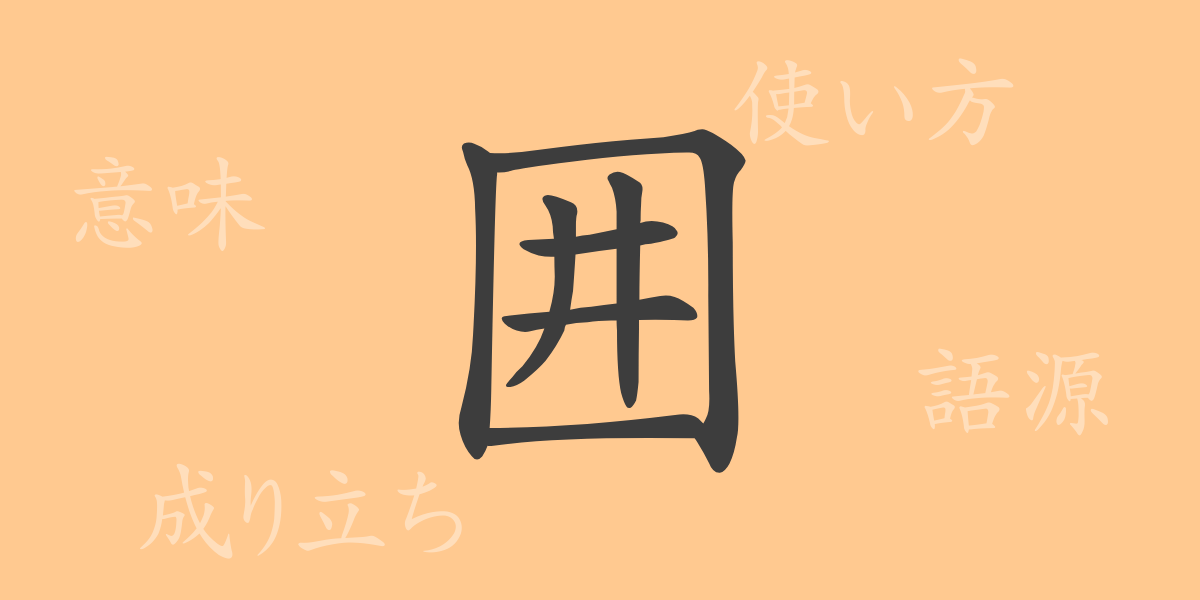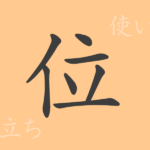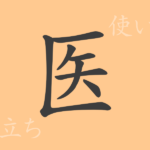“
Japanese Kanji are like beautiful puzzles, each character forming a world of its own that reflects the richness of Japanese culture and language. This article focuses on the Kanji ‘囲’ (I), exploring its origins, meanings, and usage. Through the expressive power of ‘囲’, we delve into the beauty and complexity of the Japanese language.
Origins of 囲 (I)
The Kanji ‘囲’ originated in ancient China, deriving from a pictograph that symbolized enclosures like walls or fences. Initially depicting the act of enclosing, it evolved over time to represent protection and segmentation, becoming deeply integrated into people’s lives.
Meaning and Usage of 囲
‘囲’ primarily means ‘to surround’ or ‘to encircle,’ and its applications range from physically enclosing objects to abstract concepts and situations. It is used in expressions like ‘家を囲む塀’ (a fence that encircles a house) or ‘心を囲む不安’ (anxieties that surround the heart).
Readings, Stroke Count, and Radical of 囲
The Kanji ‘囲’ is commonly used in everyday Japanese, and understanding its readings and structure is crucial for learning the language.
- Readings: On’yomi (Sino-Japanese reading) is ‘I’, and Kun’yomi (native Japanese readings) include ‘Kako-mu’, ‘Kako-u’, ‘Kako-i’.
- Stroke Count: ‘囲’ is composed of 7 strokes.
- Radical: The radical is ‘囗’ (Kunigamae), which indicates an enclosure.
Phrases and Proverbs Using 囲
‘囲’ appears in numerous idioms, phrases, and proverbs in Japanese, each offering a glimpse into the language’s depth and cultural background.
- Idiom: ‘四面楚歌’ – Being surrounded by enemies on all sides, symbolizing a situation of complete isolation.
- Phrase: ‘敵を囲む’ – To encircle the enemy, leaving no escape.
- Proverb: ‘塀の中’ – A euphemism for prison or jail.
Summary of 囲
The Kanji ‘囲’, as its form and meaning suggest, represents the important concept of enclosing to protect or define boundaries. Its use in Japanese spans various forms and expressions. Through this article, deeper insights into ‘囲’ enhance our appreciation of the rich expressive power of the Japanese language, enriching our understanding and enjoyment of its nuances.
“

























